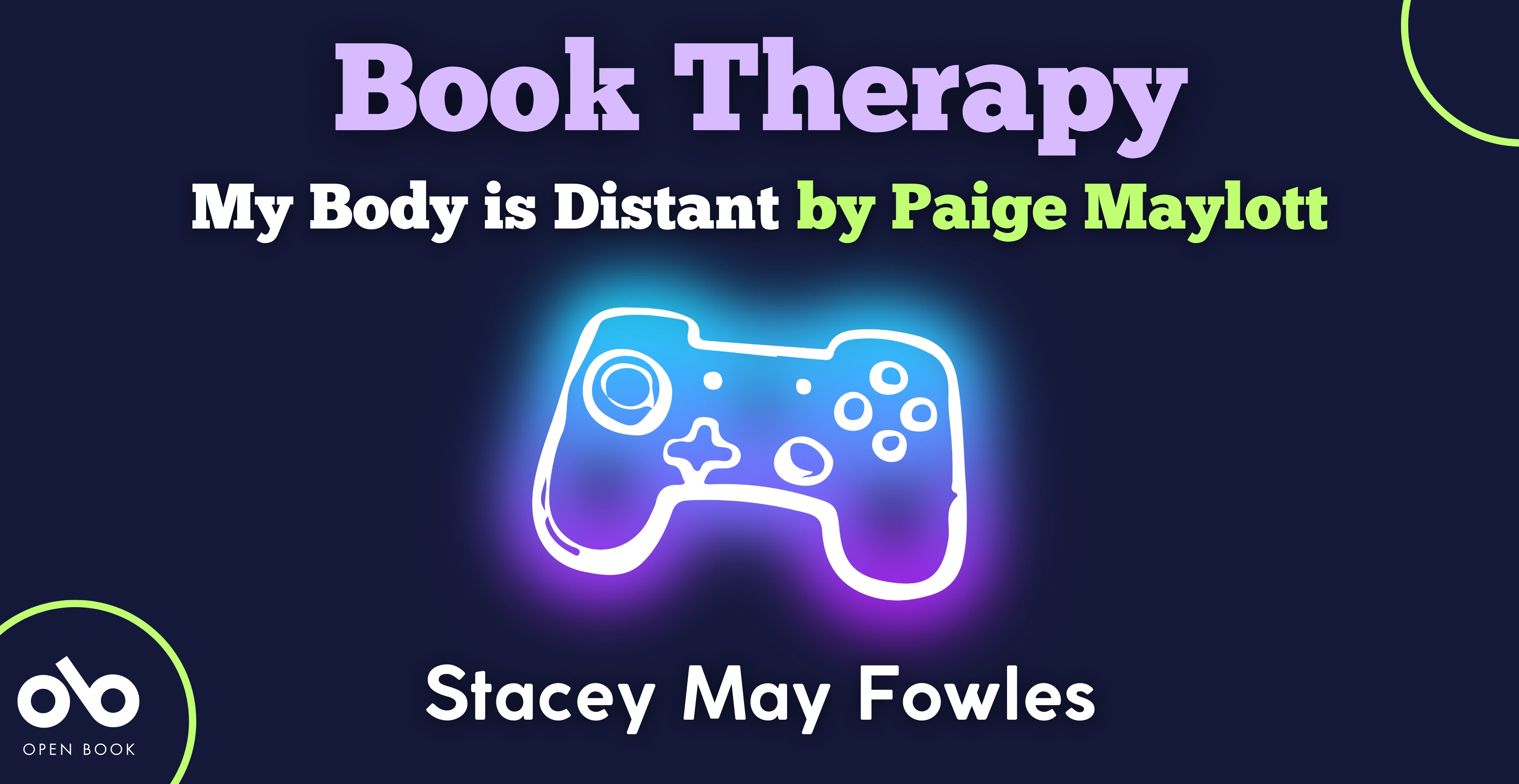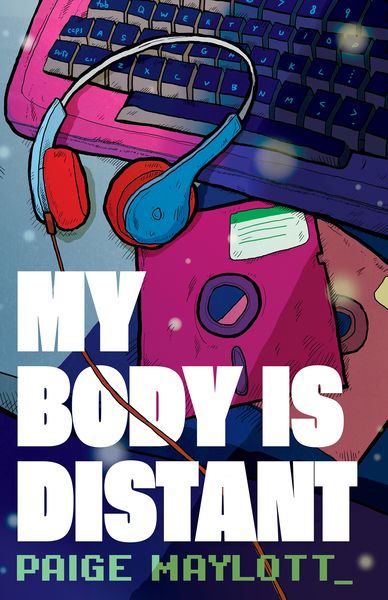Book Therapy: My Body is Distant
By Stacey May Fowles
“(Y)ou can be an elf, a monster, a kind of person you can’t be in Real Life.
You can get outside of your head and escape.”
- Paige Maylott, My Body is Distant
Escape as a therapeutic avenue is generally pretty much frowned upon. It’s considered “unhealthy” to hide away from our problems, to find places to pretend the bad things simply aren’t happening, or to vacation from difficult feelings for a while. As a culture we seem hell bent on asserting the value of always facing hardships head on, led to believe that looking away—even for a short time—won’t promote genuine healing.
I’ve always been suspect of this idea.
Sure, we know numbing the hurt won’t make it go away, but don’t we all deserve a rest now and then? In fact, sometimes a break is not only much needed, but a very, very good idea. I’ve definitely found welcome distraction in all sorts of surprising and unorthodox places, some conventionally “good,” others conventionally “bad,” and a few mostly just odd. But looking back on my life, any time or place I “hid” for a while turned out to be a necessary part of the road I was on—and ultimately helpful in figuring out where I need to go.
With My Body Is Distant, writer and gamer Paige Maylott explores the genuine power of disappearing into another world. Part trans woman’s coming-out story, part unconventional online romance, part (at times truly hilarious) narrative of human triumph, this memoir tracks the author’s childhood interest in computer games to an adult fascination offering genuine reprieve.
Grappling with a cancer diagnosis, chemo, cruelty, and the slow and eventually adversarial dissolution of a marriage, Maylott understandably retreats into an addictive and complex online universe. For her that means virtually dancing in BDSM clubs, spell casting in fantastic realms, riding a digital motorcycle, and falling in love online with an IRL man thousands of kilometres away.
“(E)very moment I’m logged into the online world is one minute fewer I have to pretend to be me—no, him—in this physical world,” she writes. “I’m no longer sure which is worse: surviving and living the rest of my life as a lie, or wasting away in this apartment and dying from this cancer.”
While these virtual experiences can be challenging in their day-to-day implications, they allow Maylott to cope with painful circumstances, and help her figure out what she really wants from her life. (“I don’t want to think about what I would do if I didn’t have a digital outlet explore this side of myself.”) Ultimately this is a book about the necessity of accepting who you were to get to who you have become, regardless of how imperfect that journey may have been.
“I prefer to think of this story as a tribute to those who seek love when they feel unlovable,” Maylott writes. “The things we do to accept the parts of us we cannot change, and the complicated, selfish choices we sometimes make to protect our bodies and our hearts.”
My Body is Distant will be appealing to readers regardless of whether or not they have any experience with the virtual worlds Maylott describes. Instead the focus here is on the very human impulse to shelve our most pressing problems and embrace another set of concerns for a time. But beyond this (and perhaps most vitally) Maylott’s story is about self exploration, self affirmation, self acceptance, and self love—and all the different (and often messy) ways we fight and fumble to get ourselves there.
Of course the key with any escape is not to get lost entirely, and eventually Maylott must break ties. “All through my life, this window into the digital world was my salvation—so why does it now feel like a shackle?” But even with that eventual severing you get the sense she is still honouring what that particular time online did for her and her evolving sense of self.
We all know that avoidance can cause harm—we’re told that all the time—but stepping away can also give us the much needed space to explore and discover who we really are, to garner strength we may not have been able to summon otherwise, or to simply rest in a world that constantly demands our action. Maylott understands that she needed to “plug into that perfectly imperfect virtual world and escape,” and in sharing that need she generously helps us consider what escape might look like for the rest of us.
Your CanLit News
Subscribe to Open Book’s newsletter to get local book events, literary content, writing tips, and more in your inbox
Book Therapy is a monthly column about how books have the capacity to help, heal, and change our lives for the better.
The views expressed by Open Book columnists are those held by the authors and do not necessarily reflect the views of Open Book.
Stacey May Fowles is an award-winning journalist, novelist, and essayist whose bylines include The Globe and Mail, The National Post, BuzzFeed, Elle, Toronto Life, The Walrus, Vice, Hazlitt, Quill and Quire, and others. She is the author of the bestselling non-fiction collection Baseball Life Advice (McClelland and Stewart), and the co-editor of the recent anthology Whatever Gets You Through (Greystone).





